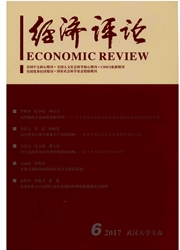

 中文摘要:
中文摘要:
本文构建一个包含金融成本落差的斯塔克博格模型,认为FDI外溢效应可能具有差别,是正向外溢还是攫取市场取决于东道国市场规模、人力资本及金融发展等条件。基于中国221个样本城市1997-2014年数据,构造面板数据多重门限回归模型。研究发现金融发展、人力资本和市场规模是获取FDI外溢的门限条件,其中金融发展不足制约着FDI外溢效果,具有单一门限效应;市场规模对FDI外溢具有阶段性影响,当市场规模低于或高于特定门限时,市场规模对FDI外溢会产生抑制作用。这意味着当FDI过度集中时可能导致内、外资企业竞争效应加强,降低FDI的正向溢出。新结构经济学倡导在欠发达国家发展时,不能只考虑与发达国家的差异,而要甄别经济发展关键环节,根据影响因素作用的阶段性,提供差异化的政策。结合FDI外溢的门限条件,有效政府应通过差别化引资政策,引导FDI流入高回报城市,促进FDI外溢效应提升。
 英文摘要:
英文摘要:
By building a Stacklberg equilibrium which include variance of capital cost,this paper finds that whether the FDI spillover effects are positive or negative depends on the development of finance,human capital and size of the market. By using panel data of 221 cities in China from 1997 to 2014, we construct multi-threshold regressive model to empirically test the non-linear hypothesis. The results show that : firstly, the decisive factors have nonlinear relationship with spillover effects of FDI. Secondly, the development of finance will restricts the FDI spillover effects when below the threshold. Thirdly, scale of market can produced periodic effects on FDI spillover: when the size of the market below or above some thresholds, it will produce negative effects;only during the reasonable range, can make significant positive effects. This means that when the FDI excessive concentrates in the same city, may strengthens the competition between foreign enterprises and local enterprises in this city, and will reduce the positive spillover of FDI. The theory of New Structural Economics advocate that, the developing countries should not just compare the differences between them with the developed countries, but also think about the key features of their own economics. According the factors influence their economics in different stages, the developing countries should provide different policies to improve spillover of the FDI.
 同期刊论文项目
同期刊论文项目
 同项目期刊论文
同项目期刊论文
 期刊信息
期刊信息
